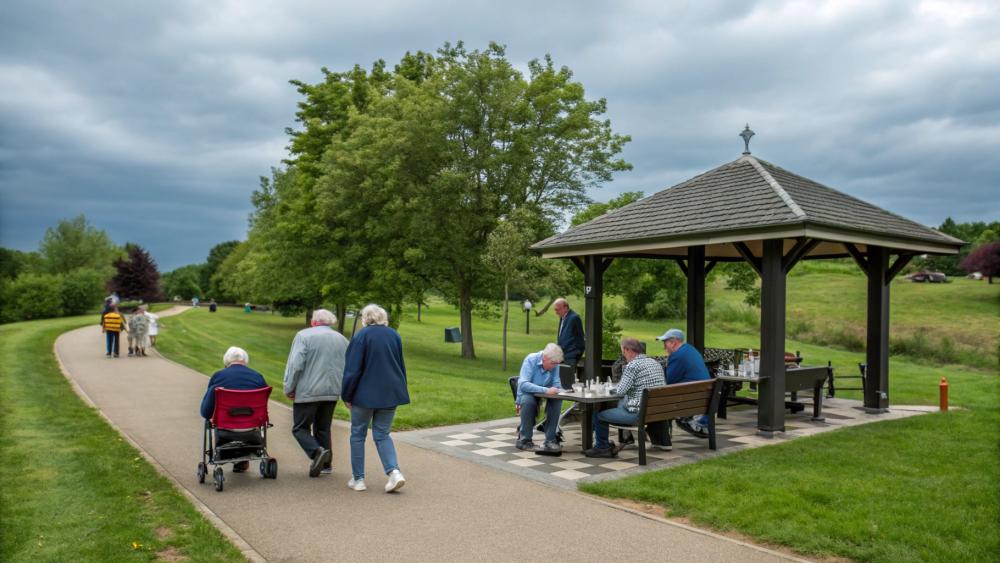
How Can Fun and Safe Recreation Activities Improve Quality of Life for Seniors

As we age, maintaining a fulfilling lifestyle is vital for overall well-being. For seniors, engaging in fun and safe recreation activities does more than pass time, it supports physical health, sharpens the mind, lifts the spirit, and fosters social connections. When these activities are thoughtfully chosen, they contribute significantly to independence and happiness.
Recreation offers seniors meaningful experiences that help them stay active and connected. With support from home care agencies, many older adults are discovering new ways to enjoy life, remain engaged, and improve their quality of living.
Why Recreation Matters for Seniors’ Well-Being
Recreation plays a vital role in supporting healthy aging. Engaging in enjoyable activities helps seniors stay physically fit, mentally sharp, and emotionally balanced. It also encourages independence and keeps them socially connected, which can reduce feelings of loneliness and depression. Well-planned recreation activities for elderly give seniors a sense of purpose and structure, making each day more fulfilling.
Key Benefits of Recreation Activities for Seniors
Participating in recreational activities brings a wide range of benefits that enhance seniors’ quality of life. These activities improve physical health, boost mental and emotional wellness, and foster social connections, all essential for maintaining an active and happy lifestyle.
Physical Health Benefits
While aging naturally brings some physical changes, regular recreational activities can help slow down this decline. Staying active helps seniors keep their strength, balance, and flexibility, which are key for staying independent and preventing injuries.
- Improved Mobility and Balance: Gentle exercises like walking or tai chi help maintain coordination and lower the risk of falls. Keeping muscles and joints flexible makes daily movements easier.
- Better Heart Health: Light aerobic activities, such as dancing or water aerobics, support cardiovascular fitness and increase stamina without putting too much strain on the body.
- Pain Relief and Flexibility: Stretching and low-impact movements can ease arthritis pain and improve range of motion, making everyday tasks more comfortable.
Overall, physical recreation helps seniors maintain their health and continue doing the activities they love.
Mental and Emotional Health Benefits
Recreation isn’t just good for the body, it’s also important for the mind and emotions. Enjoyable activities can help reduce anxiety and depression while boosting positivity and mental sharpness.
- Mental Stimulation and Memory: Puzzles, games, and learning new hobbies challenge the brain, supporting memory and lowering the risk of cognitive decline.
- Stress Relief and Mood Boost: Activities like music, meditation, or art provide creative outlets that help ease stress and improve emotional balance.
- Creativity and Self-Expression: Gardening, writing, or crafting give seniors ways to express themselves, find joy, and feel purposeful.
Engaging in these activities promotes mental clarity and emotional strength, supporting overall well-being.
Social Benefits
Staying socially connected is key to emotional health, and recreation creates great opportunities for seniors to meet others and build friendships.
- Building Friendships and Community: Group activities and clubs help seniors make new friends and create supportive social circles.
- Reducing Loneliness: Regular social interaction helps prevent feelings of isolation, which can impact both emotional and physical health.
Social recreation enriches life, providing emotional support and boosting happiness and resilience.
How Support from Home Care Agencies Facilitates Safe Recreation
Many seniors require assistance to safely access and enjoy recreation, and home care offer vital services to meet these needs. Their support helps seniors participate confidently in activities that enhance their well-being.
- Personalized Activity Planning and Assistance: Caregivers tailor activities to seniors’ interests and abilities, ensuring they are enjoyable and safe.
- Providing Transportation and Supervision: Agencies help seniors attend classes or events by offering transport and supervision, making participation easier.
- Safety Monitoring and Emergency Support: Professional caregivers monitor seniors during activities and respond quickly to any issues, providing peace of mind.
Thanks to the assistance provided by home care agencies, seniors can safely explore a wide range of recreational opportunities, leading to healthier and more active lifestyles.
Conclusion
Fun and safe recreation activities are vital for improving seniors’ quality of life. They support physical health, mental sharpness, emotional well-being, and social engagement. With the help of home care agencies in VA, seniors can safely explore new interests, maintain independence, and enjoy life to the fullest. Prioritizing recreational activities helps create a joyful and healthy aging experience.
If you’d like to explore more, you can read the Benedictine Living guide, which shares practical tips and proven benefits of therapeutic recreation for seniors.
FAQs
Q1: What recreation activities are suitable for seniors with limited mobility?
A: Low-impact options like chair yoga, gentle stretching, and seated crafts allow seniors to stay active comfortably.
Q2: How do home care agencies in VA assist seniors with recreation?
A: They provide personalized activity planning, transportation, supervision, and safety monitoring.
Q3: Can recreation help prevent cognitive decline in seniors?
A: Yes, mentally engaging activities like puzzles and games help keep the brain active and reduce decline risk.
